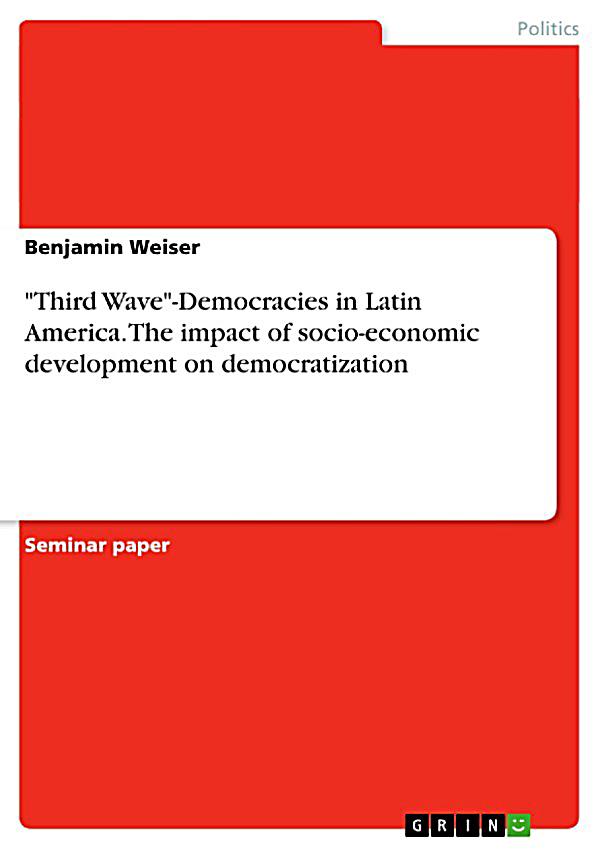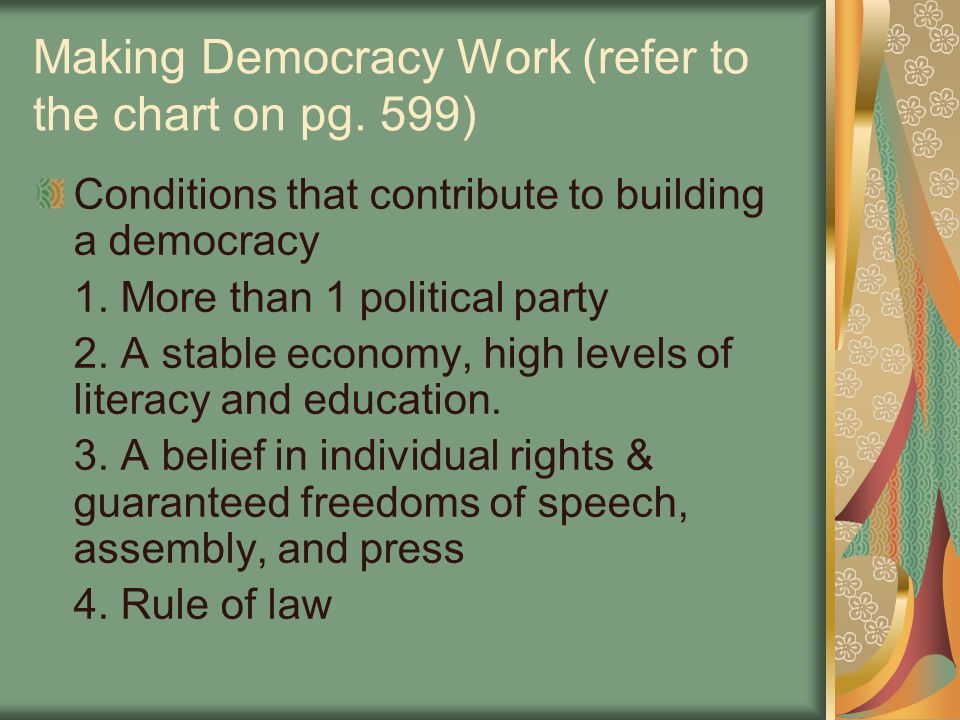

Introduction. Since gaining their independence at the beginning of the 19th century, the Latin American states have tried to establish democratic regimes.
History of Latin America – Latin America since the mid-20th century: In Latin America as elsewhere, the close of World War II was accompanied by expectations, only partly fulfilled, of steady economic development and democratic consolidation.
Start studying Enlisted PPME Block 5: Balance of Power in the Southern Cone of Latin America. Learn vocabulary, terms, and more with …
Democracy (Greek: δημοκρατία dēmokratía, literally “rule of the people”), in modern usage, is a system of government in which the citizens exercise power directly or elect representatives from among themselves to form a governing body, such as a parliament.
TPOL S 123 Introduction to Globalization (5) I&S Provides an introduction to the debates over globalization. Focuses on the growth and intensification of global ties. Addresses the resulting inequalities and tensions, as well as the new opportunities for cultural and political exchange. Topics





The journalist Ioan Grillo goes inside the hyper-violent drug cartels of Latin America in an except from his new book Gangster Warlords


Steven Levitsky and Daniel Ziblatt are Professors of Government at Harvard University. Levitsky’s research focuses on Latin America and the developing world. He is the author of Competitive Authoritarianism and is the recipient of numerous teaching awards.
The convergence of Iran-sponsored radical Islam with transnational organized crime in Latin America is a serious threat to the national security of the United States, especially in the tri-border area, or TBA, where Argentina, Brazil, and Paraguay converge.